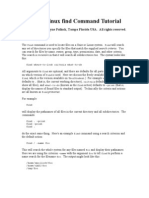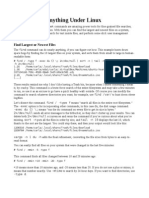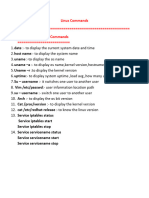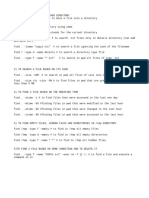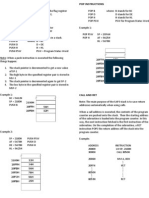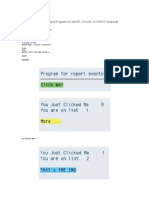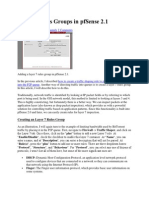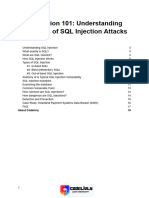0% found this document useful (0 votes)
9 views2 pagesFind Command
The document provides an overview of the 'find' command in Linux, detailing its usage for searching files and directories based on various criteria such as name, size, modification date, and permissions. It includes examples of basic usage, combining criteria, performing actions on found files, and advanced examples like searching for files with specific permissions or owned by a specific user. This utility is essential for efficient file management within the Linux filesystem.
Uploaded by
LE 406 udayCopyright
© © All Rights Reserved
We take content rights seriously. If you suspect this is your content, claim it here.
Available Formats
Download as TXT, PDF, TXT or read online on Scribd
0% found this document useful (0 votes)
9 views2 pagesFind Command
The document provides an overview of the 'find' command in Linux, detailing its usage for searching files and directories based on various criteria such as name, size, modification date, and permissions. It includes examples of basic usage, combining criteria, performing actions on found files, and advanced examples like searching for files with specific permissions or owned by a specific user. This utility is essential for efficient file management within the Linux filesystem.
Uploaded by
LE 406 udayCopyright
© © All Rights Reserved
We take content rights seriously. If you suspect this is your content, claim it here.
Available Formats
Download as TXT, PDF, TXT or read online on Scribd
/ 2





